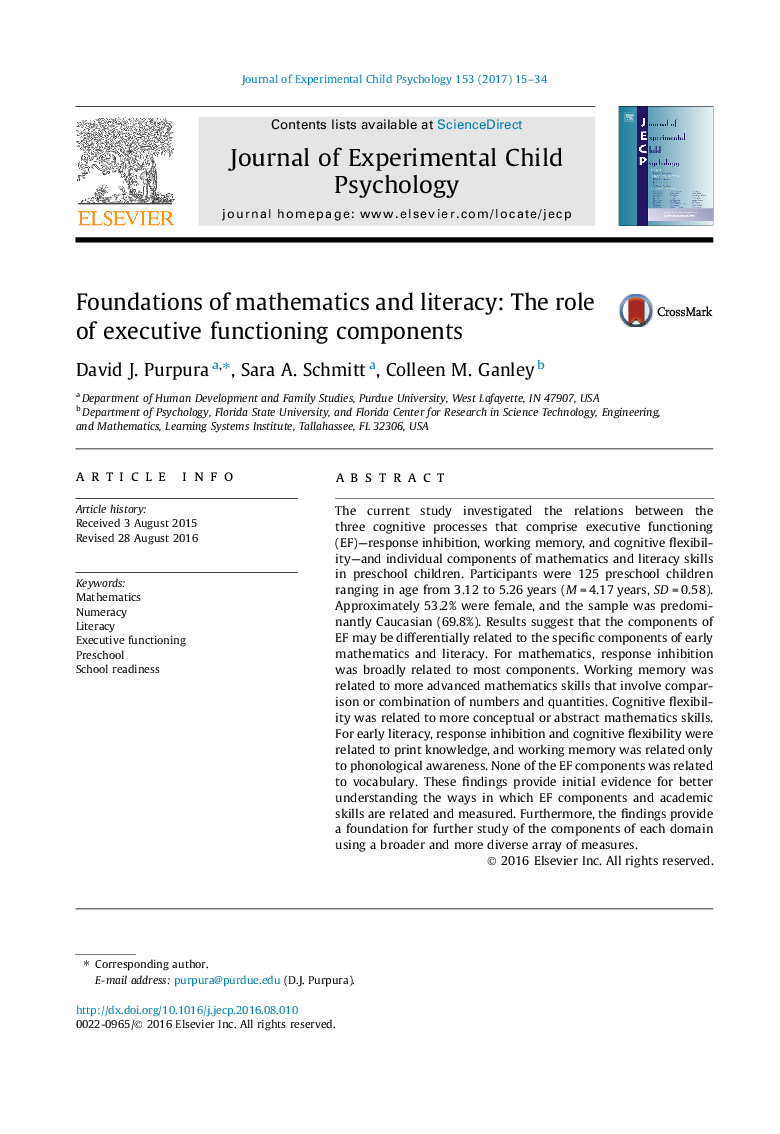| Article ID | Journal | Published Year | Pages | File Type |
|---|---|---|---|---|
| 5040000 | Journal of Experimental Child Psychology | 2017 | 20 Pages |
Abstract
The current study investigated the relations between the three cognitive processes that comprise executive functioning (EF)-response inhibition, working memory, and cognitive flexibility-and individual components of mathematics and literacy skills in preschool children. Participants were 125 preschool children ranging in age from 3.12 to 5.26Â years (MÂ =Â 4.17Â years, SDÂ =Â 0.58). Approximately 53.2% were female, and the sample was predominantly Caucasian (69.8%). Results suggest that the components of EF may be differentially related to the specific components of early mathematics and literacy. For mathematics, response inhibition was broadly related to most components. Working memory was related to more advanced mathematics skills that involve comparison or combination of numbers and quantities. Cognitive flexibility was related to more conceptual or abstract mathematics skills. For early literacy, response inhibition and cognitive flexibility were related to print knowledge, and working memory was related only to phonological awareness. None of the EF components was related to vocabulary. These findings provide initial evidence for better understanding the ways in which EF components and academic skills are related and measured. Furthermore, the findings provide a foundation for further study of the components of each domain using a broader and more diverse array of measures.
Related Topics
Social Sciences and Humanities
Psychology
Developmental and Educational Psychology
Authors
David J. Purpura, Sara A. Schmitt, Colleen M. Ganley,
